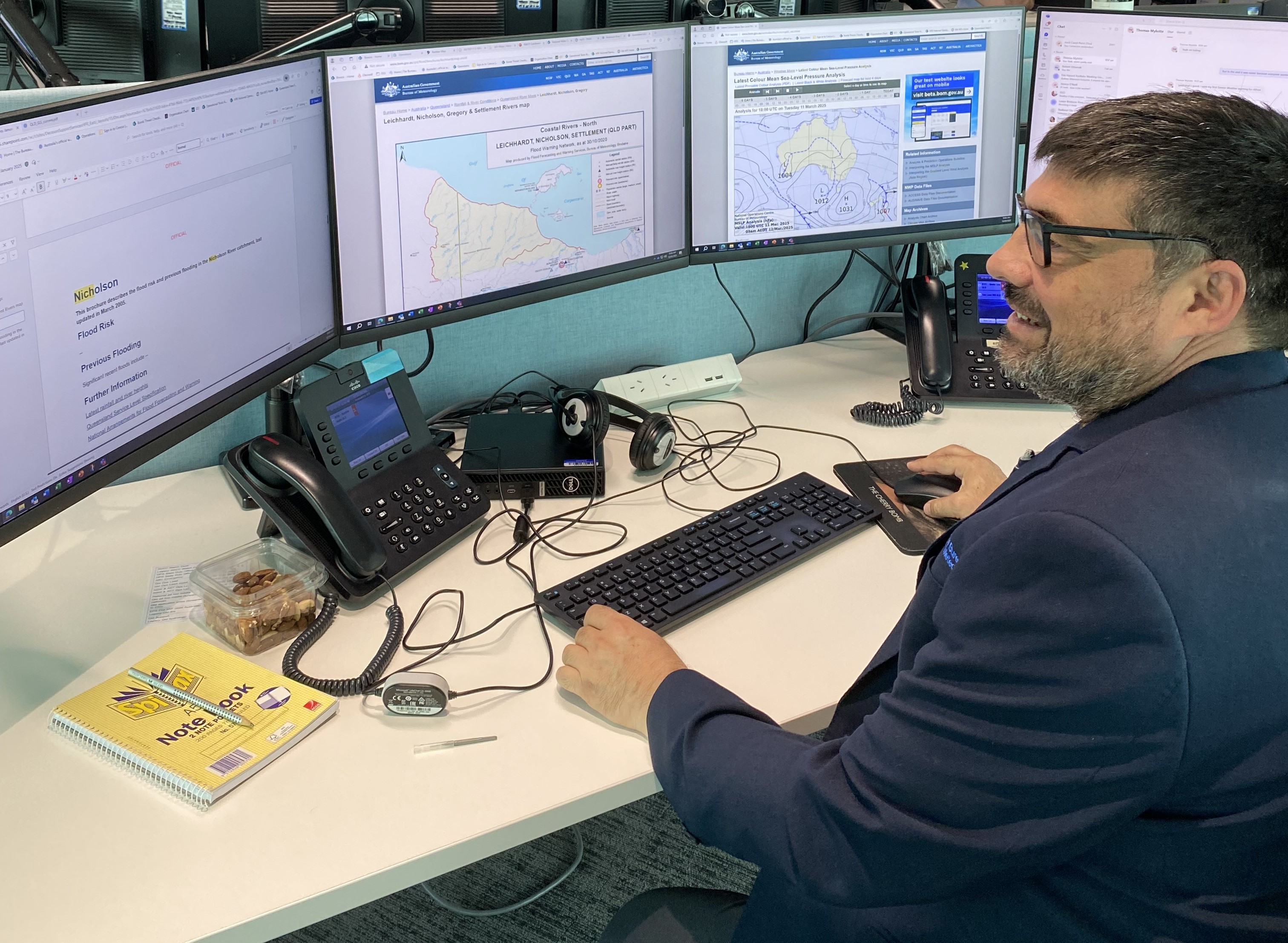Meteorology: your weather career starts here
11 April 2025
Putting science into practice, meaningful work to help communities, job opportunities in Antarctica – discover what inspires some of our newer meteorologists and how you could become one of them.
Train as a meteorologist – study weather science
The Bureau trains meteorologists through the Graduate Meteorologist Program. This is a graduate diploma in meteorology where you're paid to study over 10 months at our training centre in Melbourne. It's Australia's only meteorology qualification that meets the standard of the World Meteorological Organization. Those who successfully complete the program move straight into a guaranteed job as a meteorologist.
To be eligible to apply you need to be an Australian citizen with a degree in science, engineering or other field with physics and maths. Physics is required to first year level and applied maths to second year level.
Meet the 'mets'
Ever wondered what inspires a meteorologist – shortened to 'met' – to join the Bureau? To find out we spoke to people in the early stages of their weather careers.
Marcus – transforming a passion for science into meteorology
Marcus has just taken the first steps in his weather career, starting the Graduate Meteorologist Program in January 2025.
His journey to meteorology started in high school with a love of science. He discovered this a passionate and eccentric physics teacher.
Only a few weeks into the program, Marcus discovered just how many career pathways there are in meteorology. Originally hew was set on going into space weather since it lined up with his degree. But he's already realised he may prefer meteorological intelligence – which is the information gathered and analysed to understand and predict the weather.
He said, 'It sllows me to apply my understanding of the physics of natural phenomena worldwide and explore what impact it has on Australia and its relationships overseas'.
Marcus' career goal is to one day work with us in Antarctica. With meteorologist roles open to staff every year, he's one step closer to making that dream come true.
And Marcus' favourite part of the program so far? The diverse culture and educational background of the group. 'Aspects of each class draw out the strengths of particular people, and the shared ethos of learning brings everyone together', he said.

Image: Marcus studying with fellow graduates at the Bureau of Meteorology Training Centre.
Hanna – translating technical information into practical advice
Graduating from university with a science degree, Hanna found herself working in communications. Despite enjoying her career she always missed the intellectual stimulation of science.
After some research into a career change, Hanna decided that meteorology was the perfect blend of science and communication.
After completing the Graduate Meteorologist Program Hanna joined the Bureau's Decision Support Services team in Darwin. Here her 'perfect blend' has come to fruition. She and her team advise emergency services and the media around any weather-related phenomena that may have an impact.
Hanna feels at home in this role. She said that's because her science 'Leads to practical and meaningful advice for the community'. Being able to use her skills to benefit people – especially when they need it most – gives her 'A sense of real accomplishment and pride'.
Being away from science and study for several years was no obstacle to Hanna's career change. Hanna said, 'The grad program gave me a great foundation of meteorological knowledge and conceptual understanding.' This helped her to build the confidence to embark on her new career.
Jordi – from teaching science to doing science
Jordi was a high school maths and science teacher for over 30 years. Originally thinking of teaching as a temporary job while he worked out his dream career, he found the years sneaked away. Until one day he woke up and realised he wanted to, 'Do science, not teach it'.
Jordi knew he wanted to do something practical with maths or physics but wasn't sure what, so he sought advice close to home. He said, 'My wife encouraged me to apply for the program. Meteorology was a good fit for my interests'.

Image: Jordi took his science from classroom teaching to working as a meteorologist.
Leaving a known career and retraining for a new one is a big step – often involving a study period where you're not earning money. Not to mention starting fresh in an unfamiliar job market once your study is finished.
Jordi said, 'I wanted to change careers but needed to find a way to do it. Like most people, I have financial commitments and leaving the security of my old job was hard'.
As a paid study opportunity, the Graduate Meteorologist Program offered a way forward. 'Being paid while I studied and knowing I had a job lined up at the end made all the difference', he said.
Now in his first year of working as a meteorologist Jordi appreciates how the job combines science and public service. 'It joins together my passion for science with wanting to contribute to the public good, making everyone's life easier and potentially saving lives'.
More information
Graduate Meteorologist Program
Subscribe to our email updates list to stay informed about the course and when applications open in 2026.




Comment. Tell us what you think of this article.
Share. Tell others.